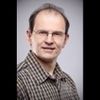Faster Python Programs - Measure, don't Guess | Tutorials
Optimization can often help to make Python programs faster or use less memory. Developing a strategy, establishing solid measuring and visualization techniques as well as knowing about algorithmic basics and datastructures are the foundation for a successful optimization. The tutorial will cover these topics. Examples will give you a hands-on experience on how to approach efficiently. Python is a great language. But it can be slow compared to other languages for certain types of tasks. If applied appropriately, optimization may reduce program runtime or memory consumption considerably. But this often comes at a price. Optimization can be time consuming and the optimized program may be more complicated. This, in turn, means more maintenance effort. How do you find out if it is worthwhile to optimize your program? Where should you start? This tutorial will help you to answer these questions. You will learn how to find an optimization strategy based on quantitative and objective criteria. You will experience that one's gut feeling what to optimize is often wrong. The solution to this problem is: „Measure, Measure, and Measure!“. You will learn how to measure program run times as well as profile CPU and memory. There are great tools available. You will learn how to use some of them. Measuring is not easy because, by definition, as soon as you start to measure, you influence your system. Keeping this impact as small as possible is important. Therefore, we will cover different measuring techniques. Furthermore, we will look at algorithmic improvements. You will see that the right data structure for the job can make a big difference. Finally, you will learn about different caching techniques.

Mike Muller
Mike Muller has been using Python as his primary programming language since 1999. He is a Python trainer and the CEO at Python Academy (www.python-academy.com).He teaches a wide variety of Python topics including Introduction to Python, Python for Scientists and Engineers, Advanced Python as well as Optimization and Extensions of Python Programs.He is the chairman of the Python Software Verband e.V., a PSF member, a PSF community service award holder, User Group co-founder. He chaired EuroSciPy 2008 and 2009, PyCon DE 2011 and 2012 as well as EuroPython 2014 in Berlin, Germany.
Room 3
Thursday, 18th May, 09:00 - 12:20
